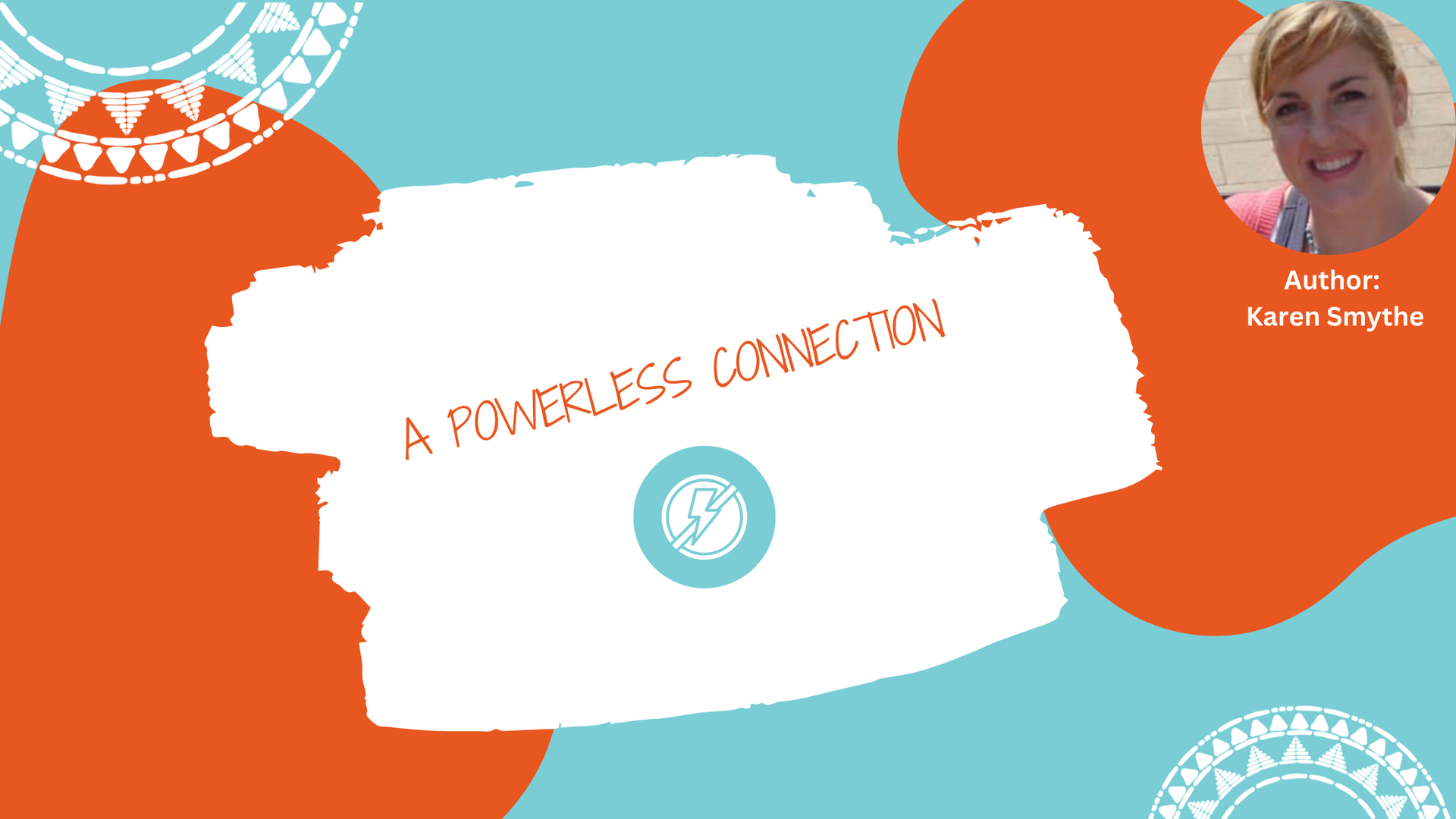In this month’s theme, Calm is a Superpower, we are expanding on last month where we explored ways to protect our peace.
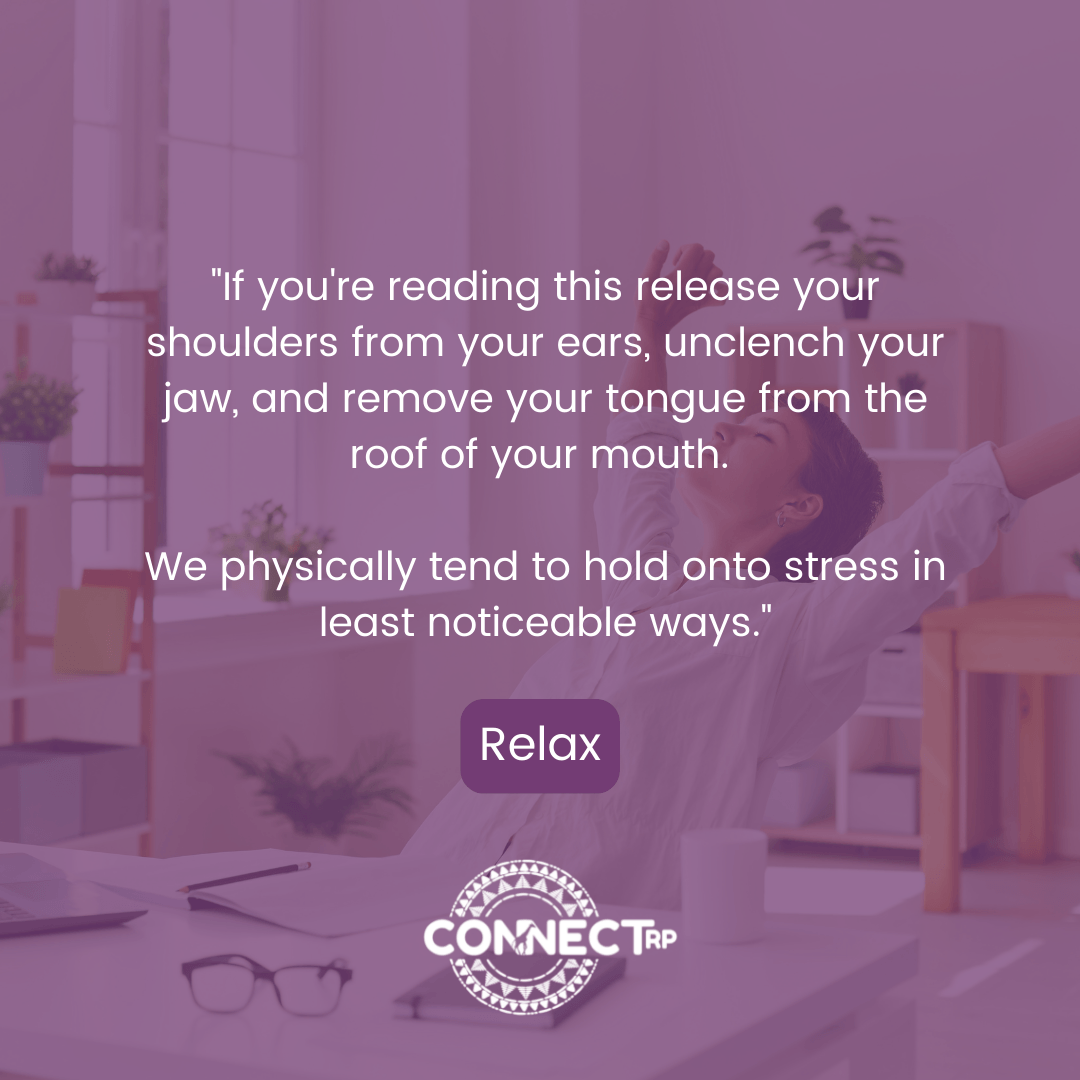
People are not just born calm – it’s a practice and what we practise grows stronger! When working restoratively in a consistent and conscious way, we are nurturing pathways to move from this state to trait. There may be many barriers to accessing this for us and the people within the communities with whom we work. The more I learn about the impact of trauma and stress on the brain, and in turn on our behaviours and capacities to connect relationally, the more compassion I feel, for myself and others when we find ourselves midst the chaos or charge of conflict. As the indigenous wisdom that RP is rooted within reminds us…
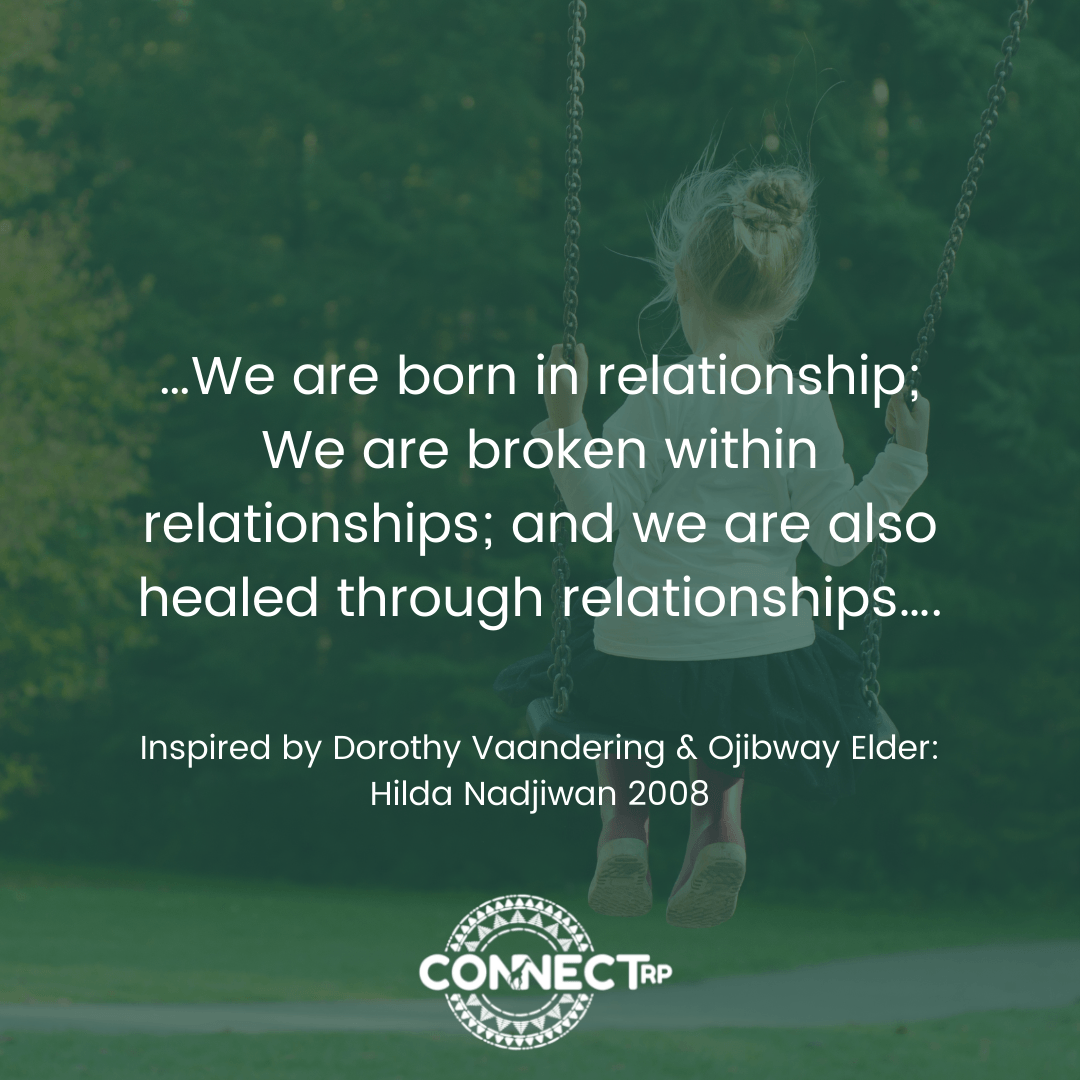
and all relationships involve risk. Risk which can be tough to tolerate when we are wounded – we need those therapeutic moments of connection, relational experiences of healing only available once we have regulated.. cultivated within the calm.
In this video extract from our self-paced certified course ‘Restorative Me’ we explore how Calm is a Superpower and how calm people practise two things before they respond – they breathe and they ask questions.
As many of you know, the restorative questions are can often be a big attraction to RP – the fact that it offers an explicit language, developing our conflict literacy skills can be appealing!
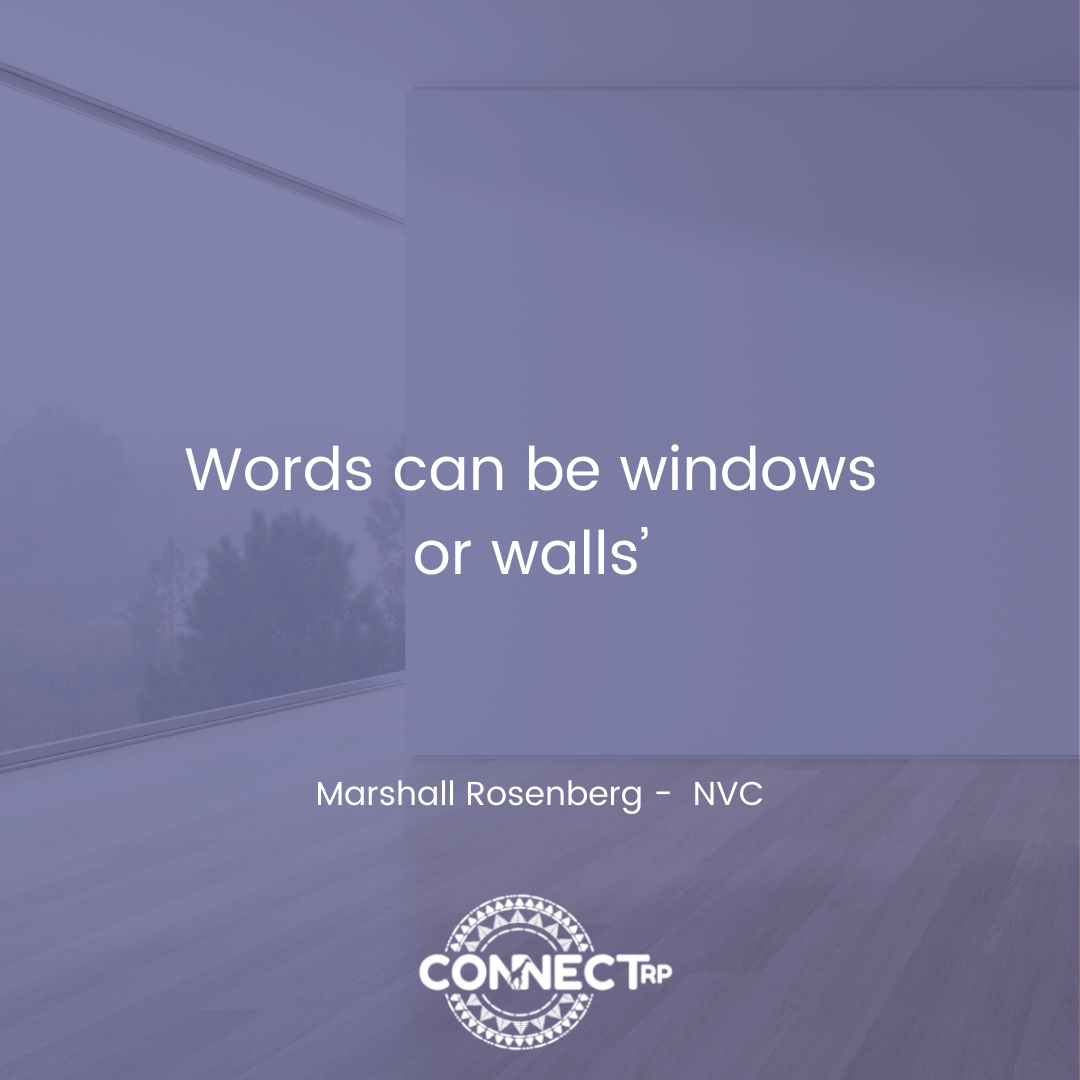
Last month we gifted a PDF of the restorative questions:
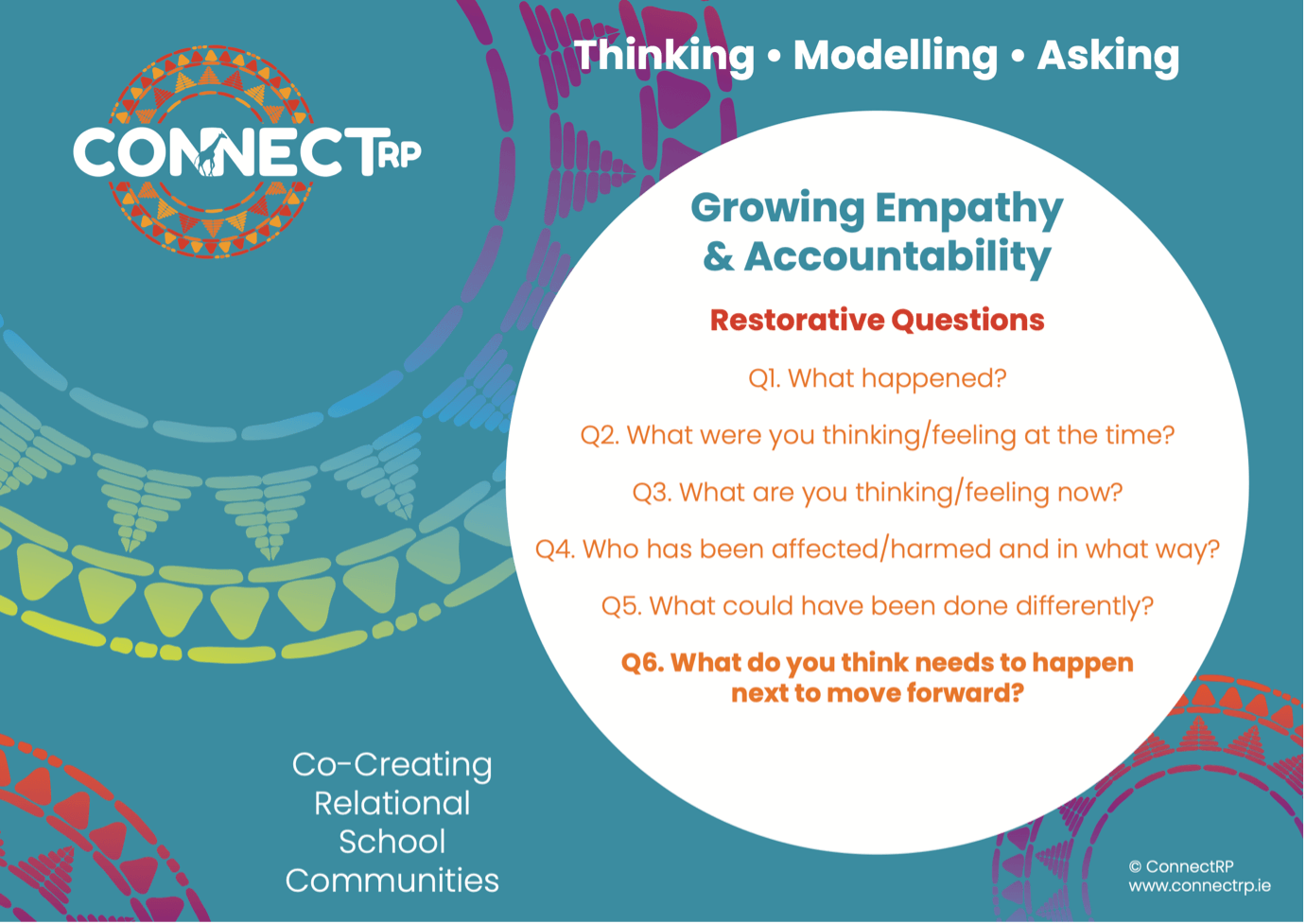
In addition to these, one of my personal favourite questions to consider and that helps me to regulate myself, rather than get lost in a narrative or fear-driven story I can create is …
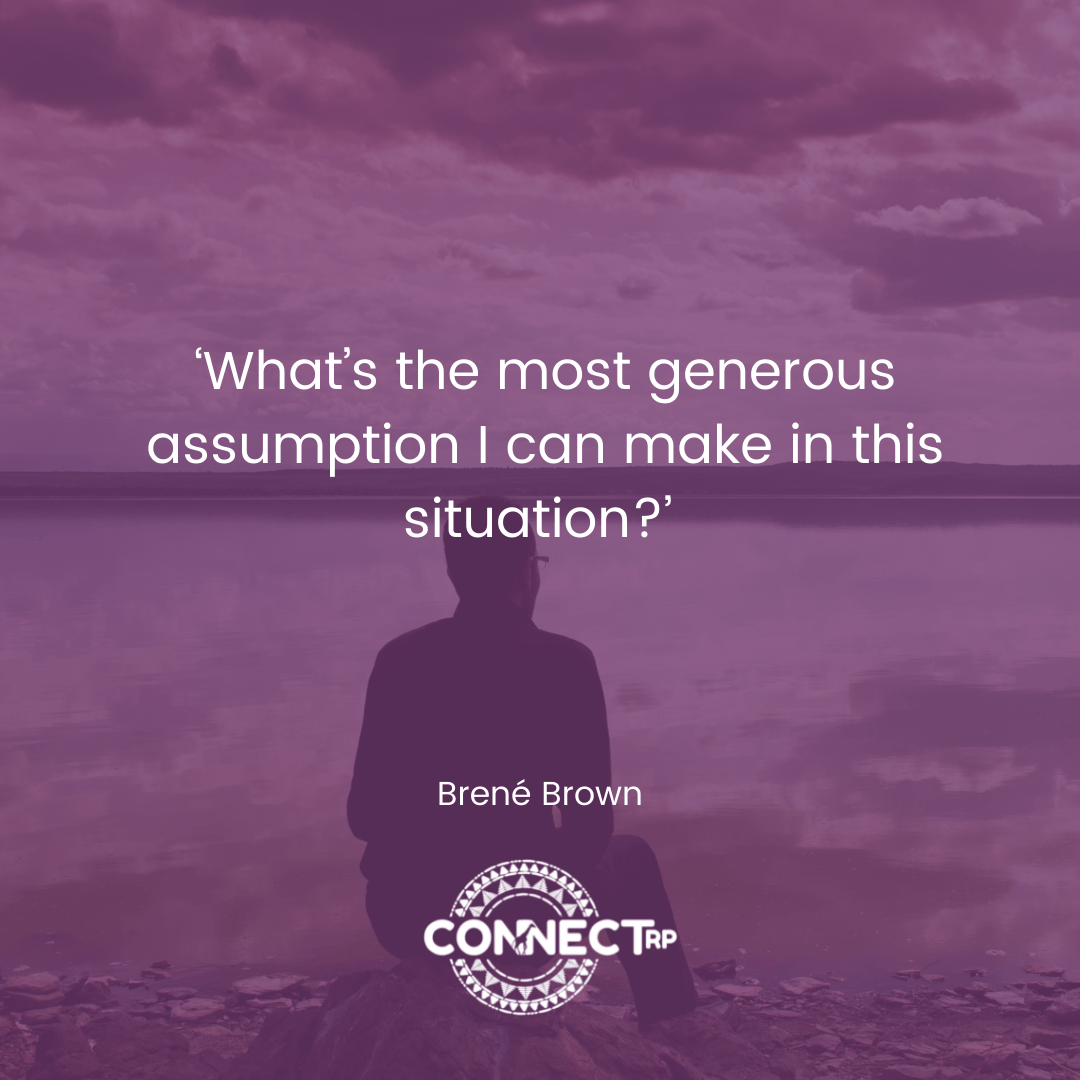
It allows me to access an inner pause, to challenge my instinct to self-protect by considering the worst possible motivations or outcomes which are so often untrue and regularly inaccurate.
The restorative questions are helpful for our inner narrative and indeed to support us with our dialogue with our students.
But at times, we can jump to trying to reason with our students too quickly. We have yet to allow space and time for regulation for ourselves or indeed for our students whose brain may be offline. We need space to breathe, so our brains are functioning from our pre-frontal cortex (our wise owl) - where we can access our reason, our language centre and executive functions.
Breathing is essential for regulation.
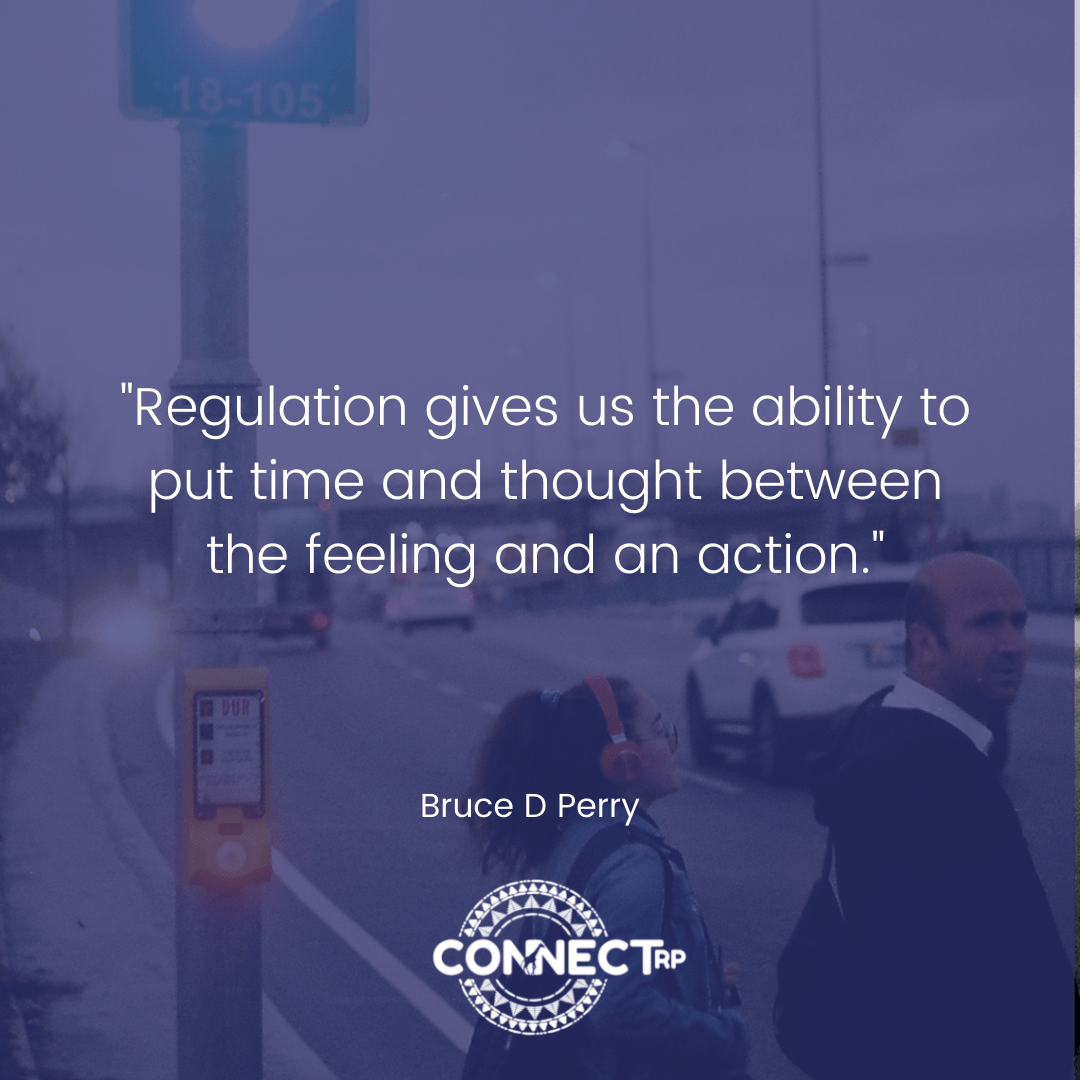
Without regulation we may have by-passed the conditions that nurture such an empathic enquiry. Bruce Perry reminds us that there are 3Rs – Regulate, Relate and then Reason. He offers a very insightful short series for educators on the neuro-sequential model of the brain, and the impact of stress and trauma that you may find transformative for your own practice- I know I have! You can check this out here.
We explore the idea and mechanics of Bruce Perry’s 3xRS in more detail in our RP and Additional Educational Needs individual certified self-paced course that all our Connect RP schools have access to or that can find individually here. Our RP for Students programmes also seek to grow the awareness and capacity of our young people to identify, regulate and respond to our emotions in healthy, relational ways; and to recognise the compassion response needed when this is not available to us.
This month’s Connect RP gift offers a ‘Connect In Zone’ resource that was inspired by so many others doing this important work (from Mind Up Programme, Zones of Regulation, to Bruce Perry and to Daniel Siegal) and we hope that you may find the collective wisdom offered here helpful when working with your students.
I have also been lucky enough to be in dialogue and learn with Joe Brummer, a restorative author, colleague and friend. I was invited to offer a testimonial for the publication of his powerful book, Building a Trauma-Informed Restorative School which I highly recommend. I am so grateful that I get to co-create a workshop with Joe this month for my Connect RP Schools and I am looking forward to bringing this offering in one of our CPD sessions next year, supporting them on their whole school restorative journey.
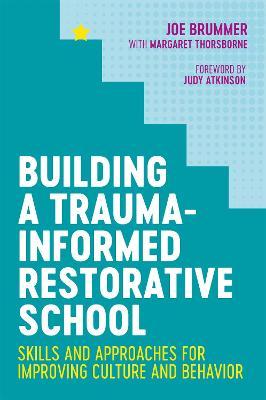
In the meantime, I highly recommend his book for an awesome RP summer read…or you might even be inspired to join us on our Connect RP EPV Summer Course.
Yours with much giraffe love,
Michelle

